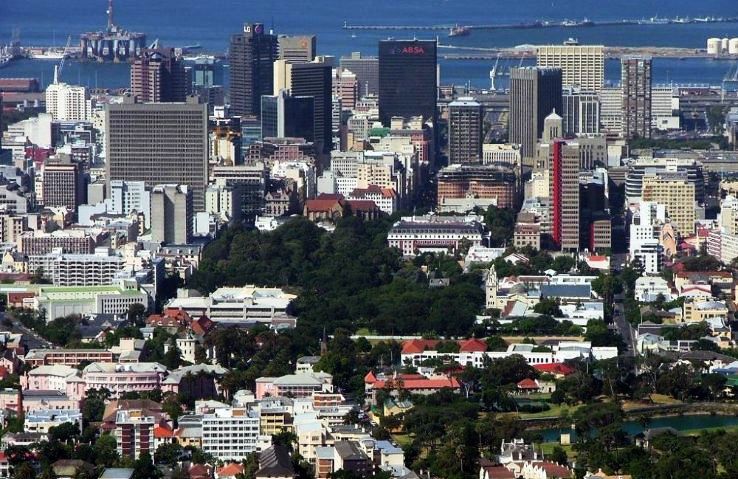Residents of the Federal Capital Territory (FCT) have expressed frustration over rising transport fares, which have severely impacted their daily activities and business operations. Speaking to the News Agency of Nigeria (NAN), many residents lamented the non-availability of fuel, despite the recent hike in its price, as the main factor driving up transportation costs.
According to the residents, fuel scarcity has made movement within the city difficult, with many unable to attend to personal or business engagements. They noted that the situation has significantly disrupted their routines, as the cost of getting around the city has skyrocketed.
“We are facing two problems: the fuel is expensive, and yet, we still cannot find it easily at filling stations,” said one resident. “This has led to higher transport fares, and it’s becoming difficult to move around the city.”
Commuters explained that many commercial drivers have either reduced their services or increased their fares due to the scarcity. They added that the few buses and taxis still operating in the FCT are charging significantly more to cover the increased cost of fuel, leaving many residents with no choice but to limit their movement or find alternative means of transport.
Business owners are also feeling the impact, as transportation costs have affected logistics and the flow of goods. Many have reported delays in deliveries and higher operational costs, which in turn affects their profit margins. The ripple effect is being felt across various sectors, with both small and large businesses struggling to keep up with the increased expenses.
The residents urged the government to take urgent steps to address the fuel scarcity, calling for improved fuel supply to filling stations and better regulation of fuel prices. They emphasized the need for immediate intervention, as the current situation is unsustainable for both individuals and businesses.
Public transport operators have also called on the government to intervene, noting that the increased cost of fuel has made it difficult for them to continue operating at previous fare rates. Many have had to either reduce their fleet or pass the extra cost onto commuters, who are already grappling with economic challenges.
As the situation persists, FCT residents are left with fewer options, anxiously waiting for a resolution that would ease both the fuel supply issues and the soaring cost of transportation.












I think residents should just ride bicycles or walk. Its good exercise and saves money! Who needs fuel anyway?
I think people should just start riding bicycles everywhere. Its good exercise and saves money on transport! Whos with me? 🚲
I think residents should just ride ostriches to get around! Its eco-friendly and would definitely solve the transport fare issue. Whos with me? 🐦🚗
I think its time we all switch to bicycles and scooters. Who needs fuel when you can pedal your way around? 🚲 #EcoFriendlyTransport
I think we should all just ride bicycles instead of complaining about transport fares. Its good exercise and eco-friendly!
I dont get why theyre complaining about transport fares. Just walk or ride a bike, problem solved! 🚶🏾♂️🚲 #SolutionsNotComplaints
I think we should all just start riding bicycles to work. Who needs fuel anyways? Lets go green, people! 🚲🌿
I dont get why people are complaining about transport fares. Just walk or ride a bike, problem solved!
I think people should just ride bicycles instead of complaining about transport fares. Its eco-friendly and good exercise!
This fuel scarcity is a blessing in disguise! Maybe its time for FCT residents to embrace alternative modes of transport. Just a thought!
I think residents should just ride bicycles instead of complaining about rising transport fares. Its good exercise too!
I think the residents should just ride horses instead of complaining about transport fares. Its eco-friendly and trendy! 🐎🌿 #FuelScarcitySolutions
Why are we complaining about transport fares? Lets all just ride unicorns to work instead! Problem solved. 🦄🌈
Why complain about transport fares? Start walking or cycling, its good exercise! Embrace the fuel scarcity challenge. #ControversialOpinion
I think residents should carpool more to save money. Its time to embrace the sharing economy! #FuelScarcitySolutions
I think the residents should just start using hoverboards instead of complaining about transport fares. Problem solved! 🛹 #FutureIsNow
I think the residents should just start riding bicycles or rollerblades everywhere. Its good exercise and saves money!
I think residents should just embrace the high transport fares as a sign of economic growth. Adapt and move on!
Why dont they just ride bicycles? Its good exercise and eco-friendly! Embrace the change, people! 🚲 #FuelScarcity #TransportFares
I dont get why people are complaining about transport fares. Just walk or ride a bike, problem solved!
Not everyone has the luxury of walking or biking everywhere. Consider different circumstances.
Why cant residents carpool or use bicycles instead of complaining about transport fares? Lets think outside the box!
I dont get why theyre complaining about transport fares. Just walk or ride a bike, problem solved!
Not everyone can walk or bike long distances. Cost and accessibility are real issues.
I think people are overreacting about the transport fares. Just walk or ride a bicycle, problem solved!
I believe the solution is to switch to riding elephants instead of complaining about transport fares. Problem solved! 🐘🚗
I think residents should carpool more and stop complaining about transport fares. Save money and reduce traffic!
I dont get why people are complaining about transport fares rising. Just walk or ride a bike, problem solved!
Not everyone has the luxury of walking or biking everywhere. Consider different circumstances.
I think people should just start riding horses to work. Its eco-friendly and will save us from these crazy transport fares.
Riding horses to work in the city? Are we in the 1800s? Think practical, not romantic.
I think residents should consider carpooling or biking instead of complaining about transport fares. Lets get creative!
I think FCT residents should just ride ostriches to work instead of complaining about transport fares. Problem solved!
I think residents should carpool more often to save money on transport. Its a simple solution to the rising fares issue.
I think residents should just start riding camels instead of complaining about transport fares. Its eco-friendly and could be a fun alternative!
I think the residents should just ride bicycles everywhere. Its good exercise and eco-friendly! Who needs fuel anyways?
Fuel is still necessary for many aspects of life. Bicycles arent a practical solution for everyone.